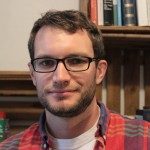Link to Pubmed [PMID] – 32620892
Link to DOI – 10.1038/s42003-020-1081-3
Commun Biol 2020 07; 3(1): 351
The genomes of Plasmodium spp. encode a number of different multigene families that are thought to play a critical role for survival. However, with the exception of the P. falciparum var genes, very little is known about the biological roles of any of the other multigene families. Using the recently developed Selection Linked Integration method, we have been able to activate the expression of a single member of a multigene family of our choice in Plasmodium spp. from its endogenous promoter. We demonstrate the usefulness of this approach by activating the expression of a unique var, rifin and stevor in P. falciparum as well as yir in P. yoelii. Characterization of the selected parasites reveals differences between the different families in terms of mutual exclusive control, co-regulation, and host adaptation. Our results further support the application of the approach for the study of multigene families in Plasmodium and other organisms.

